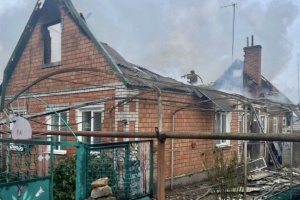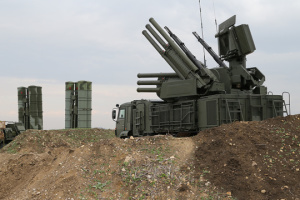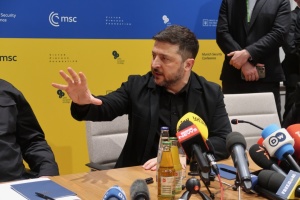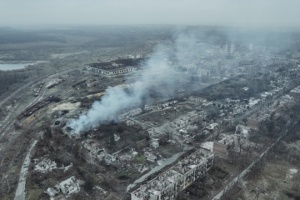
NATO must pull from cluster munitions convention – military expert
The relevant op-ed was published by CEPA, Ukrinform saw.
“A potential Russian invasion of the Baltic countries is a growing concern,” Rice says. “The fear that Latvia, Lithuania, and Estonia would fall in a matter of days is a serious threat to regional stability and to alliance integrity.”
He stressed the need to exhaust every military, diplomatic, and economic effort to deter the potential invasion of a NATO ally as the previous deterrence tactic did not prevent Russia from attacking Ukraine.
“This will be an effort on many fronts, but it could usefully begin with withdrawal from the Cluster Munitions Convention, an international agreement that includes 23 European members of NATO — including the UK, France, and Germany — and that amounts to a serious act of military self-harm. (Russia has not signed,)” Rice wrote.
Admitting the controversial nature of cluster munitions as they can leave unexploded submunitions behind, Rice says there are numerous reasons why they are “a good thing on the battlefield (as Ukraine has been demonstrating.)”
“Artillery cluster munitions are much, much more deadly, especially against troops advancing in the open — as they would in any attack on the Baltics,” Dan Rice argued.
“US army research from the Vietnam War showed that it took 13.6 shells to kill an enemy combatant with standard 155mm shells, and only 1.7 using cluster rounds. As noted by the UK’s RUSI think tank, that has enormous implications for wear on artillery barrels. In the open terrain of the Donbas and Crimea, the ratio is likely much more extreme. This is an artillery-based war of attrition, and cluster artillery shells are NATO’s most lethal artillery,” the op-ed reads.
Rice says this is well understood by NATO’s military, especially in the frontline states, as Finland, Poland, Romania, Estonia, and Latvia have not signed the convention. The issue is now being debated again in Lithuania; the country’s defense ministry wants it to abrogate the treaty, according to Rice.
The need for cluster munitions is particularly pressing in the Polish-Lithuanian borderland known as the Suwałki Gap, where Russia poses a credible threat of a high-intensity conflict. This strategic corridor, if seized by Russian forces, could cut off the Baltic states from the rest of NATO, wrote the former CinC adviser.
He recalled that cluster munitions were some of the most lethal conventional weapons that successfully deterred the Soviet Union. These munitions can destroy large-scale Russian units quickly, especially if they are on the offensive.
The 2008 Convention, signed by 112 countries in Oslo in 2008, was a “misguided attempt at achieving peace”, Rice argues, noting that it “weakened the West’s deterrence capabilities and gave an advantage to aggressors like Russia and China, who refused to sign”.
Norway and Lithuania are the only NATO states bordering Russia that have signed the convention. “It is crucial that both now acknowledge changing circumstances by withdrawing from this agreement. They should make it clear to Russia that they possess cluster munitions and are prepared to use them in defense should they be invaded,” the op-ed reads.
Also, the UK, being a party to the Convention, has “unintentionally weakened the defenses of Central and Eastern Europe”. Last year, the British Defense Secretary Ben Wallace suggested arms manufacturers should look to replicate the effects of cluster munitions and implicitly acknowledged that without them, the UK armed forces lacked an important capability, Rice recalled.
“As NATO celebrates its 75th anniversary at the Washington summit in July, all those members that have signed should unite in withdrawing from the CMC. It would be useful if the move were led by Norway and the UK, both founding NATO members, who can reasonably assert that the use of cluster munitions is designed to restore deterrence, and thus improve the prospects for peace,” Dan Rice wrote.




